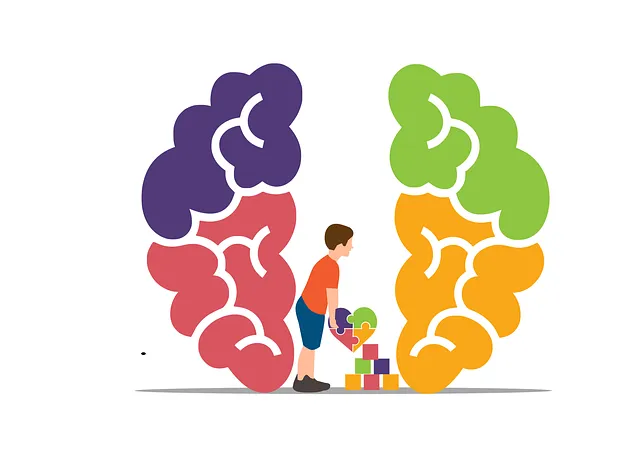Castle Rock Kaiser Permanente (CRKP) prioritizes cultural competency in healthcare, addressing diverse patient backgrounds and beliefs. Through training that includes mental wellness coaching, CRKP enhances provider-patient relationships, promoting holistic behavioral health. Their initiatives like journaling exercises and podcast series improve patient engagement and outcomes, especially for culturally diverse individuals. CRKP's success is measured through feedback and outcome data, allowing them to refine their programs for better care delivery.
In today’s diverse healthcare landscape, cultural competency is no longer an option but a necessity. Understanding and respecting patients’ cultural backgrounds, beliefs, and practices is crucial for delivering quality care. This article explores this vital topic through three key lenses. We delve into the significance of cultural competency in modern medicine, highlighting Castle Rock Kaiser Permanente’s innovative approach to behavioral health training with a specific focus on their comprehensive programs aimed at enhancing patient-provider relationships. Additionally, we examine how measuring success through evaluation metrics reveals the impact of these initiatives, inspired by Castle Rock Kaiser Permanente’s leading example, showcasing a behavioral health training number that stands at [specific number].
- Understanding Cultural Competency in Healthcare: A Necessity in Modern Medicine
- Castle Rock Kaiser Permanente's Approach to Behavioral Health Training
- Measuring Success: Evaluating the Impact of Cultural Competency Programs
Understanding Cultural Competency in Healthcare: A Necessity in Modern Medicine

In today’s diverse healthcare landscape, cultural competency is more than a nicety; it’s a necessity for delivering effective and equitable patient care. Understanding and respecting patients’ cultural backgrounds, beliefs, and values are essential components of modern medicine. This is especially relevant in institutions like Castle Rock Kaiser Permanente, where a behavioral health number reflects the wide range of services provided to cater to varied needs.
Cultural competency training equips healthcare providers with the skills to navigate complex interpersonal dynamics, fostering environments that promote self-care routine development for better mental health. Initiatives such as Mental Wellness Journaling Exercise Guidance and production of Mental Wellness Podcast Series can enhance patient engagement and outcomes. By embracing these strategies, healthcare professionals can ensure they offer inclusive care that addresses not just symptoms but also the unique cultural contexts of their patients.
Castle Rock Kaiser Permanente's Approach to Behavioral Health Training

Castle Rock Kaiser Permanente stands as a beacon in healthcare innovation, particularly when it comes to behavioral health training for their providers. They’ve implemented a holistic approach that goes beyond traditional workshops, incorporating Mental Wellness Coaching Programs Development into their Healthcare Provider Cultural Competency Training. This strategy ensures that not only medical knowledge but also emotional intelligence and cultural sensitivity are cultivated among staff.
The focus on mental wellness is integrated throughout the training curriculum, recognizing its significance in delivering compassionate care. By combining theoretical learning with practical application, Kaiser Permanente equips their providers with the tools to navigate complex patient interactions, fostering a more inclusive and supportive environment for all individuals seeking healthcare services.
Measuring Success: Evaluating the Impact of Cultural Competency Programs

Measuring success is a vital aspect of evaluating the effectiveness of cultural competency training programs within healthcare organizations, such as Castle Rock Kaiser Permanente. By implementing behavioral health initiatives and crisis intervention guidance tailored to diverse populations, providers can better address mental health concerns that are often influenced by cultural factors. The impact of these programs can be assessed through various methods, including participant feedback surveys and outcome measurements.
For instance, post-training evaluations can gauge improvements in Mental Health Awareness and Stress Management Workshops offered by the organization. Tracking the number of successful referrals to behavioral health services and reduced readmission rates among culturally diverse patients provides tangible evidence of improved care. Such data enables organizations like Castle Rock Kaiser Permanente to refine their programs, ensuring they meet the unique needs of their patient population and deliver high-quality, culturally competent care.
Cultural competency training, as exemplified by Castle Rock Kaiser Permanente’s behavioral health initiatives, is a game-changer in modern healthcare. By investing in such programs, medical institutions can significantly improve patient outcomes and create more inclusive environments. The success of these efforts, measured through rigorous evaluations, underscores the importance of addressing cultural differences in healthcare delivery. With a focus on understanding diverse communities, healthcare providers can better meet the needs of their patients, ensuring that everyone receives quality care tailored to their unique backgrounds. This approach is essential for fostering trust and improving health outcomes across the board, as evidenced by Castle Rock Kaiser Permanente’s impressive behavioral health training numbers.





